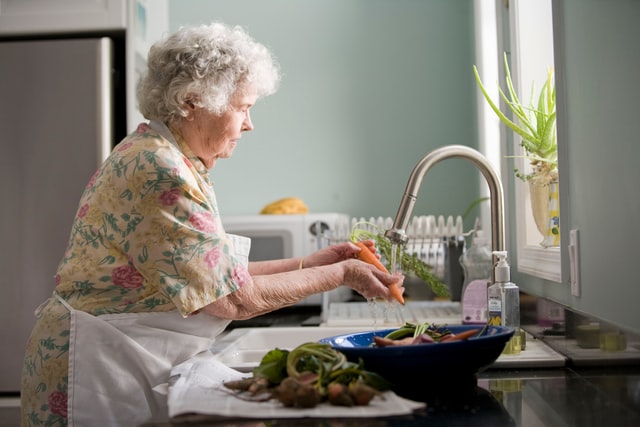Nobody prepares you for old age and the challenges that come along with it. A person caring for elders needs some direction and guidance. Being young and healthy, it can get difficult to imagine what an elder might need.
A little thoughtfulness and some helpful tips can go a long way when it comes to taking care of seniors.
1. Accident Proofing the House
Old people are like children. They are equally likely to fall and get hurt as they lose their motor abilities as age catches up. Most of the accidents among senior citizens happen in the washroom. Either they have slipped in the bath and broken their brittle bones or lost balance due to a wet floor. It is important to not only reorganize the house for better accessibility for the elderly patient with mobility issues but also to ensure that they are not prone to imbalance and slippery surfaces around the house.
Caregivers and nurses must ensure that the floors of the house and the bathroom are dry to prevent any accidental slipping. In case of any water or oil spill, it should be cleaned immediately and the surface must be left to dry for some time.
Special care should also be taken to ensure that no wire is left loose on the floor or hanging from the walls as they might trip on it or get electrocuted.
2. Encourage Yoga and Easy Exercises
Yoga is beneficial to the mind and body, especially in aging people. If you are in charge of the well-being of the elderly then make sure you promote yoga and exercise. The best way to inspire them is by doing it yourself first. Wake up a bit earlier and take out 10-15 minutes to stretch so they can eventually feel like joining you.
Exercising is beneficial for elderly patients as it strengthens bones and muscles. Physical activity brings steadiness to the body. Get them moving to keep the blood flowing through the body. Learn how you could even get paid to take care of family members for the time and effort you take out of your regular study or work hours.
3. Take them for a walk
Walking is a great recreational activity. Early morning walks are the best for keeping the cholesterol in control and ensures regular bowel movements. Being in the open when the sun is shining can provide the elderly with the very essential Vitamin D.
If you are in charge of an elder person, you must focus on their mobility to prevent them from staying cooped inside the house. Always staying inside is harmful to their mental health as it brews depression and irritability. This impacts their will to live and recover. Even elderly patients with mobility issues must be taken out for a stroll for fresh sunlight and air to rejuvenate their mood.
4. Within the arm’s distance
The aging of bones and muscles can be unpredictable at times. Spasms and sudden muscle pulls are very common among older people. The house needs to be arranged in such a way that when they are in the room alone and need their asthma Inhaler or anxiety pills, it is not too far to reach. Medicines, food, and water should be kept within the reach of the patient. Emergency numbers should be on the speed dial, and the patient must be taught how to use them in dire circumstances.
5. Food
An elderly person needs proper nutrition to stay healthy and keep their immunity extra strong as they are more likely to catch an infection compared to younger people. A nutritionist can draw up a daily meal plan with foods that best fit for their lifestyle. Meals can be prepared weekly so that it is easier for the senior citizen to heat and eat a warm meal every day.
6. Conversations and Company
Most elders are empty nesters by the age of 70 if they aren’t living around their families. Someone to eat their meals with and talk to can really perk up their mental health. Everything begins in the mind. So above everything else, make sure you spend some quality time with them. It is a simple gesture that goes a long way in increasing their will to live better.
Conclusion
People around need to be made clear about the elders’ needs. Food allergies, medicines they take, triggers and emergency needs can be crucial when we are talking about elders.
If there are nurses or family members around, everyone should be on the same page. Teamwork can prevent any accidents that could have happened had they been by themselves.

